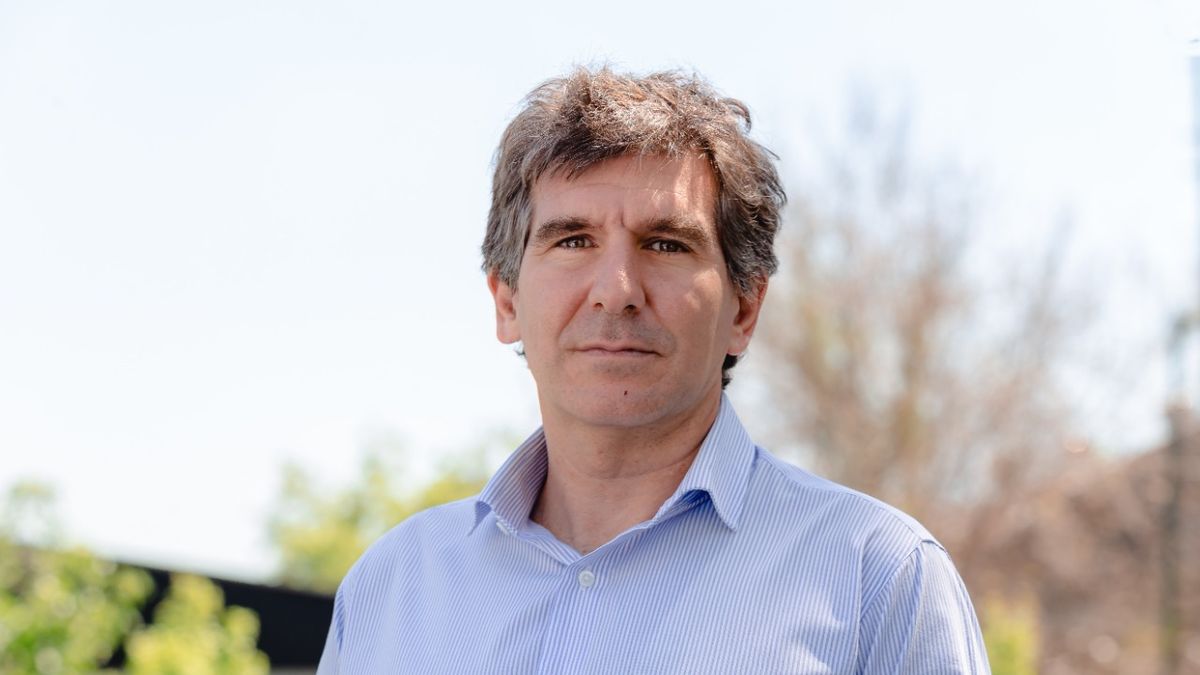The national capital firm Argensun was born in the midst of Argentine hyperinflation, it was in 1989 when the Díaz Colodrero brothers, Pablo, Javier and Fernando, saw a business in the confectionery sunflower, but that it remained in the hands of foreign companies.. More specifically, firms from the United States produced the crop in Argentina, exported it to their country for processing and then sold it to international markets where it was consumed as a snack.
With a very clear commercial vision, These three Argentine entrepreneurs understood that the added value had to be done in the country and they got to work. First they got the plant genetics – seeds – to plant, then they partnered with agricultural producers and in parallel they brought machines from the United States. Thus, a 100% Argentine industry was born with the confectionery sunflower as the only product and it was a complete success.
Soon they added more special products such as sesame, chia and dried plums to their export portfolio, but they did not stop there. Then they ventured into the domestic market with the launch of their own brand of confectionery sunflower in a snack version, which they called Pipas and it was also a success. Today this company is responsible for 40% of Argentine confectionery sunflower exports, 95% of the bags of confectionery sunflower seeds that are planted in the country are from genetics developed by the firm and with its Pipas brand they sell about 500,000 bags per day in the kiosks, so they have more than 60% of the market share of this product. But that’s not all because Argensun now bets and is working to consolidate itself as a food company, with cookies, juices, waters and dairy products, among other products, for the domestic market and export. Within this scheme, it recently acquired 51% of the Tía Maruca cookie company and has many expansion plans. Next, Its CEO Pablo Tamburo tells, in dialogue with Ámbito, what this new business plan represents and what it means to be an SME in Argentina.
Journalist (P.): How was the evolution for Argensun to go from being a single-product company, with the confectionery sunflower as its banner, to launching a brand in the domestic market like Pipas and adding more and more products and business units?
Pablo Tamburo (PT): Argensun is a company with more than 30 years of experience, it was first born as a family business and then became professional, but without losing its values, that is, the passion for working and providing work, with Argentine owners who love this country. ANDThis company currently reaches more than 70 countries with confectionery sunflowerswhere he found a very important business niche. In Europe, North African and Arab countries, they consume it like peanuts here, or more because it is present on all tables and as a snack. Another very important issue is that we developed a genetic improvement program to obtain those varieties that the world demanded. and today it is the largest in the Western world and we not only source the seeds, but we also sell them both in the local and international markets. But there came a point that the sunflower was not enough and we added more products to our exportable offer, first were dried plums, then other specialties such as chia and sesame, among others. In short, we took advantage of our commercial network, the knowledge we already had, to go out and sell more products. Then, in 1996, understanding that the confectionery sunflower was widely consumed abroad, we launched the product in the domestic market as a snack with the Pipas brand. We wanted to replicate what we saw abroad and we achieved it. Today Pipas is synonymous with confectionery sunflower in Argentina, but the beginnings were not easy at all, a very strong bet was made with an important marketing and communication campaign. In parallel, we also had to convince the kiosks to accept the product. in his businesses because he was very little known. At the beginning we told them “take a box of Pipes, if you don’t sell it, give it back to me, if you sell it right there you pay me” and that was the way we got to the kiosks.
San Rafael Plant 2.jpeg
Q.: And how did the possibility of staying with the Tía Maruca cookie company arise, a business segment in which you had no experience?
PT: In 2015 there was a paradigm shift in the confectionery sunflower business for export, at that time China entered and built an entire giant structure with lower costs and there the global competition became more complex. In any case, Argensun continues to be one of the leaders in the export business, but we understood that we had to diversify what we were doing even more. For commercial reasons we knew the people of Tía Maruca and we knew that they were going through a very complicated financial issue, with a preventive bankruptcy of creditors, and we proposed to partner with them. Argensun did not buy the company, it did not put in a peso, but rather it became a partner, We share share capital and the focus from then on was on raising it so that it regains its shine. We contributed our knowledge and they contributed theirs, which was also a lot, and with this synergy we are doing very well. Tía Maruca also has a production plant in San Juan that belonged to Pepsico and has great potential to once again be a leader in its segment. In the last two years we were cleaning up processes and now a very strong relaunch is coming. With a similar strategy we are also entering the beverage business, mainly games and water, with the Pura Fresh brand and the same in the dairy business, We are in talks with a cheese company. We aim to unite SMEs and contribute all our knowledge to these valuable companies.
Q.: In a crisis context like the current one, there must be many companies that precisely need to associate to stay afloat. Is it an opportunity for Argensun?
P.T.: Of course, crises are an opportunity. We as a company are very well armed, we are not looking at the short term, and although we continue to be an SME that at the end of the day always has paying salaries in mind, We have a very important muscle. Our export business is very consolidated, we have access to working capital and that is a strength. Then there are other companies that are going through a difficult time due to the current drop in consumption or because they did not know how to do things well. and we can enter there to associate, to buy, all possibilities are valid. Another key issue is that we have an extensive commercial network abroad, we have commercial offices in Egypt, Brazil, New Zealand and Spain and Today we not only export specialties in bulk, but we are already selling cookies to Bolivia, Paraguay and Chile.
Q.: There is precisely a controversy due to the Government’s deregulation of food imports. Today, local and foreign products compete on the shelves. How do you analyze it as an SME businessman?
PT: As a consumer, it seems very positive to me that there is more variety on the shelves. On the other hand, the reality is that the situation for SMEs is very complicated, we have structural costs, which those products that come from outside do not have and it is very difficult to compete. The Government made correct progress in deregulating bureaucratic issues, in procedures that were previously impossible, but it must also look at SMEsbecause the reality is that the tax burden did not decrease, quite the opposite. We have to face gross income, there are very large logistical costs because we do not have trains, the routes are very deteriorated, the labor reform has not yet come out either.The rest of us pay very high salaries in dollars, but they don’t help reactivate consumption either. For example, an Argentine worker, on average, earns about US$1,500 and that is a high salary for the region, but due to the increase in the cost of living it is not enough for him at all. I hope that the Government sees this situation, it is good that it accommodates the macro, but the micro is very important. Otherwise, more SMEs will disappear; today only those that are efficient resist because the truth is that not everyone has access to working capital either.
Q: Do you think there can be any recovery in consumption as anticipated by the Government?
PT: That is our hope and what we are working for today, but The truth is that today is very complex. Inflation is no longer a problem and today employment and consumption are. The Government must look at these two issues, I want to believe that it is doing so. The reality is that If SMEs continue to be hit so hard, they will continue to disappear and there will be less employment and without employment there will be no consumption either, It’s a wheel. For example, instead of producing, today it is more profitable to import finished product and sell it in the domestic market and we do not do it because that means closing the factory and laying off the workers, Our commitment is to generate added value and employment. The truth is that many are doing it, while we are committed to launching new products, it is not easy and that is whyWe hope that the Government really listens to SMEs and takes microeconomics into account as soon as possible.
Source: Ambito
I am Pierce Boyd, a driven and ambitious professional working in the news industry. I have been writing for 24 Hours Worlds for over five years, specializing in sports section coverage. During my tenure at the publication, I have built an impressive portfolio of articles that has earned me a reputation as an experienced journalist and content creator.




